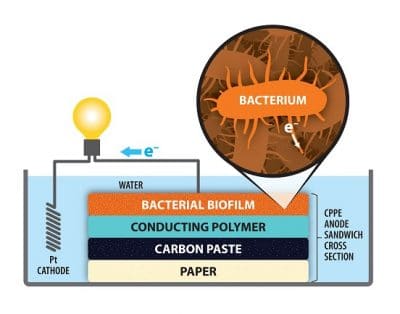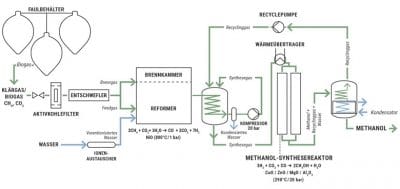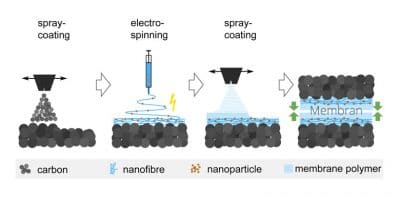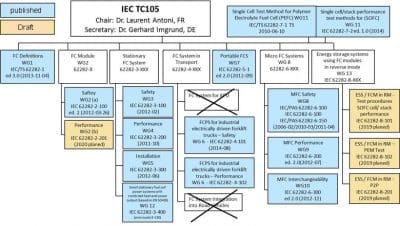
NOW Turns 10 Years Old


by Hydrogeit | Dec 3, 2018 | Germany


by Hydrogeit | Dec 3, 2018 | worldwide
The difference between microbial fuel cells and devices converting energy by purely chemical means is that bacteria and not artificial materials, such as polymer electrolyte membranes and ceramic oxide parts, control the reaction. Instead of a catalyst, microbes will feed on organic matter, for example, wastewater and lactic acid, to generate a voltage through metabolic activity. (more…)

by Hydrogeit | Dec 3, 2018 | Germany
Biogas has, for a long time, been known as a renewable energy source. It powers not just stationary systems, that is, CHP plants, but also means of transportation, albeit in purified form. Another versatile energy carrier is hydrogen, especially considering its deployment as zero-emission storage. It can be stored and transported without major technical issues. (more…)

by Hydrogeit | Dec 3, 2018 | Germany
At the heart of every PEM fuel cell, there is a membrane electrode assembly. It has a considerable impact on the output and lifetime, as well as the cost, of a stack. It is of such import that it has sparked multiple efforts to research and develop new kinds of materials and manufacturing techniques. (more…)

by Hydrogeit | Dec 3, 2018 | Germany
Businesses need clearly defined rules to popularize new technologies among a wide variety of users. Because those in the rapidly growing market for fuel cell devices have seen limited success in standardization, several companies and institutions are now trying to create a shared set of recommendations. (more…)
| Cookie | Duration | Description |
|---|---|---|
| cookielawinfo-checbox-analytics | 11 months | This cookie is set by GDPR Cookie Consent plugin. The cookie is used to store the user consent for the cookies in the category "Analytics". |
| cookielawinfo-checbox-functional | 11 months | The cookie is set by GDPR cookie consent to record the user consent for the cookies in the category "Functional". |
| cookielawinfo-checbox-others | 11 months | This cookie is set by GDPR Cookie Consent plugin. The cookie is used to store the user consent for the cookies in the category "Other. |
| cookielawinfo-checkbox-necessary | 11 months | This cookie is set by GDPR Cookie Consent plugin. The cookies is used to store the user consent for the cookies in the category "Necessary". |
| cookielawinfo-checkbox-performance | 11 months | This cookie is set by GDPR Cookie Consent plugin. The cookie is used to store the user consent for the cookies in the category "Performance". |
| viewed_cookie_policy | 11 months | The cookie is set by the GDPR Cookie Consent plugin and is used to store whether or not user has consented to the use of cookies. It does not store any personal data. |